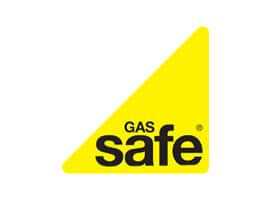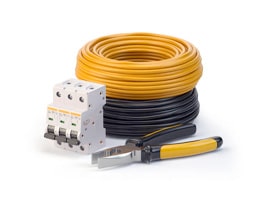Gas and carbon monoxide (CO) safety bodies issue safety warning following new research.
40 people have been killed or injured by CO poisoning while staying in a tent, caravan, holiday cottage or boat in Britain in the past two years. As 29.5 million Brits are expected to holiday in the UK this year, Gas Safe Register - the UK’s official gas safety body - and the All Party Parliamentary Carbon Monoxide Group (APPCOG) are issuing urgent advice on how holidaymakers can keep themselves safe.
New research, carried out by Gas Safe Register, has further found that many Brits do not understand the dangers of CO on holiday. More than one in two Britons (53 per cent) do not recognise a smoking charcoal barbeque in a tent, caravan, motor home or room can result in CO poisoning. More than one in three (38 per cent) do not know that using a portable gas camping stove inside can result in poisoning and over one in five (22 per cent) do not realise CO can build up in a poorly ventilated space with working gas appliances in it, such as a caravan.
Roland Wessling is only too aware that not knowing the dangers of CO poisoning can result in tragedy. Roland lost his partner, Hazel Woodhams, 30, in 2011 when she was overcome by CO fumes. The couple brought their barbeque, which was cold and no longer smoking, inside their tent without realising it was emitting deadly CO - as CO can’t be seen, smelt or tasted, making it a silent killer.
Should Britain suffer a cold spell this summer the threat of CO poisoning could be greater. Nearly one in 10 people (eight per cent) say it is likely they would bring a charcoal barbeque into a tent or caravan to keep warm. Last year the cold weather led to the tragic deaths of Hannah Thomas-Jones, 14, in May 2012 and Isabelle Harris, six, in April 2012, after their respective families brought a barbeque inside their tents to keep warm.
Carbon monoxide is a highly dangerous and poisonous gas that is produced by the incomplete burning of gas, liquid gas, oil, coal and wood.
Sarah Hill, stakeholder manager for Gas Safe Register, comments: “We want people to know and understand the dangers of CO on holiday. Many of the tragic deaths and serious injuries over the past two years could have been avoided if the individuals had known the causes, which, as in Roland’s case, are not always obvious. This is why we’re working with APPCOG to issue vital safety advice, so that when it comes to CO people can identify and avoid risky situations and get help quickly should they suspect danger.”
Follow Gas Safe Register and APPCOG’s advice:
- Never use a smouldering or lit barbeque (charcoal or gas), gas stove, light or heater in a tent, caravan, room or cabin, or under an awning unless it is a permanent fixture that has been installed and maintained correctly. Even if you have finished cooking, your barbeque will still give off fumes for some hours after use.
- Remember the six main signs and symptoms of carbon monoxide poisoning and don’t confuse it with food poisoning or another holiday related illness – headaches, dizziness, breathlessness, nausea, collapse and loss of consciousness. If concerned, seek medical advice.
- If using a gas appliance, check that it is in good order, undamaged and, where present, that hoses are properly attached and undamaged. If in doubt contact the owner to get the hoses replaced or do not use it. If you are unable to contact the responsible person and have to change the cylinder yourself, make sure the gas taps or cylinder valve are turned off before changing the gas cylinder and only do this in the open air. Do not over-tighten joints.
- If you are staying in rented accommodation where there are gas appliances, check there is a current gas safety check record displayed. If you cannot see one, ask the owner if the gas appliances in your accommodation have been safety checked and serviced within the last 12 months. In the UK, the owner must do this by law.
- Recognise the signs of dodgy gas appliances. Black marks or stains around the appliance, yellow lazy flames instead of crisp blue flames, and too much condensation are all signs gas appliances aren’t working properly.




